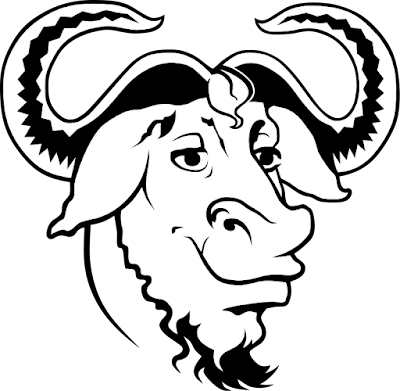 |
| By Aurelio A. Heckert <aurium@gmail.com> - gnu.org, CC BY-SA 2.0, https://en.wikipedia.org/w/index.php?curid=33285325 |
![]() GNU, which stands for "GNU's Not Unix," is an extensive collection of free and open-source software. It was initiated by Richard Stallman in 1983 with the goal of creating a complete and fully functional Unix-like operating system that adhered to the principles of software freedom.
GNU, which stands for "GNU's Not Unix," is an extensive collection of free and open-source software. It was initiated by Richard Stallman in 1983 with the goal of creating a complete and fully functional Unix-like operating system that adhered to the principles of software freedom.
The origins of GNU trace back to the early 1980s when Richard Stallman, a prominent computer programmer and activist, was working at the Massachusetts Institute of Technology (MIT) within the Artificial Intelligence Lab. During that time, software was increasingly being distributed in a proprietary manner, which restricted users' freedom to study, modify, and distribute the code.
In 1983, Stallman announced the GNU Project and founded the Free Software Foundation (FSF) to support its development. The GNU Project aimed to create a free and open-source alternative to the proprietary Unix operating system. Stallman and his team set out to develop a complete software system comprising all the necessary components, including a kernel, compilers, text editors, shell, libraries, and more.
One of the key components of the GNU Project is the GNU General Public License (GPL), which is a widely used free software license. The GPL ensures that users have the freedom to run, study, modify, and distribute the software and its source code.
However, despite significant progress in developing various components of the GNU system, the project faced challenges in developing a kernel—the core of an operating system. In 1991, Linus Torvalds released the Linux kernel, which happened to complement the GNU system perfectly. The combination of the Linux kernel and the GNU software formed what is commonly known as "GNU/Linux" or simply "Linux."
The GNU Project and the Linux kernel together created a robust, free, and open-source operating system that revolutionized the software industry. Linux distributions, such as Ubuntu, Fedora, and Debian, became popular, providing a complete GNU/Linux system that is widely used today in various domains, including servers, desktops, embedded systems, and supercomputers.
The GNU Project, along with the Free Software Foundation, continues to promote the principles of software freedom and advocates for the use and development of free and open-source software. The GNU software, including the GCC compiler suite, GNU Emacs, and many other tools, has been influential in shaping the open-source movement and has had a profound impact on the world of software development.
Source: Some or all of the content was generated using an AI language model

No comments:
Post a Comment
Contact The Wizard!
(he/him)